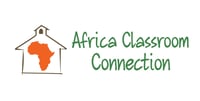Yes, deciding a school is necessary and that funds can be raised is made by the community for the community. Local buy-in comes in the form of the community making their deposit toward the cost of the project and committing to the necessary requirements such as leveling the land and securing water for construction.
FAQs
Africa Classroom Connection’s core principles of grassroots participation and co-investment guide the building of classrooms and make this a highly successful “self-help” project. Communities are eager for education, raising financial deposits of about 3% (significant to them), leveling land, and securing water needed for construction. ACC funds the rest. Community investment means the residents respect and care for their school. Simple, standardized engineering plans allow for residents to partake in construction and gain work experience while ensuring common materials are readily available. Labor is kept within the community, providing badly needed jobs, skills, and income.
Yes, ACC is a 501(c)(3) certified organization with tax ID/EIN 20-4271457.
The donations ACC receives are carefully directed to communities in need where ACC can make an immediate impact in building a new classroom. The students living in KwaZulu-Natal greatly appreciate your generosity and giving spirit. Know that your donations will change lives and make dreams possible! ACC maintains very low administrative costs.
Yes, your donation is tax-deductible. ACC is a registered 501(c)(3) organization. You will receive a confirmation receipt after you submit your donation.
It costs approximately $13,000 to build one classroom. ACC fundraises over 95% of the construction costs and the local community raises about 3% of the expenses. Grassroots participation and co-investment guide the building of the classrooms and have made this a very successful “self-help” project.
To date, we have built over 142 classrooms which have served more than 56,000 students.
There are approximately 150 classrooms on our waiting list. This means that 150 communities have already raised the necessary funds and are awaiting our donations to make their dream a reality.
The classrooms are utilized by learners in grades kindergarten through high school. In the evenings and weekends, some communities use the classrooms for adult education, such as learning a trade.
Our partnership with the local South African organization Eshowe Community Action Group (ECAG) ensures consistent communication, planning, and project implementation. Founded in 1977, ECAG has been our trusted local partner for 15 years by assisting in needs assessment, site selection, construction facilitation, and evaluating finished projects alongside principals and teachers. Progress reports and financial statements are reviewed to ensure accountability. Site visits also take place.
While the government does build schools, ACC is constructing classrooms at a much faster rate and much lower cost than the government. When apartheid was abolished, the South African government found itself saddled with decades worth of unmet needs. While education was a high priority, building classrooms in rural areas such as those near Eshowe was not. Thus, the effects of apartheid are still apparent in the lack of facilities and opportunities.
Once the classrooms are built, the South Africa government agrees to accept ownership and maintain the classrooms, including the schools in the national curriculum.
Once built, the government sources and hires teachers for the classrooms, who may come from the immediate area or beyond.
